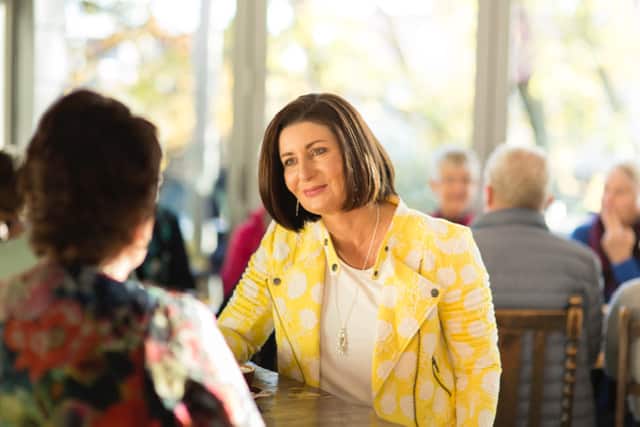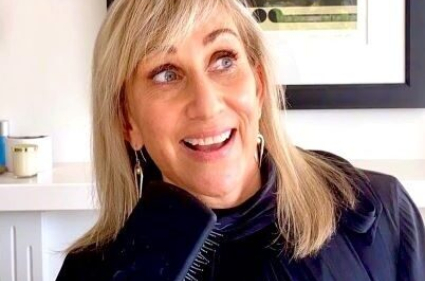What is it like to be a Mayor? 10 Questions with Rachel Reese

Disclaimer: I’m not really into local body politics. Come to think of it, I’m not sure why, because I certainly have an opinion on loads of decisions my local city council makes.
It's local body election time here in Nelson. Those pesky VOTE FOR ME signs are doing my head in. But when my husband was invited to the current Mayor, Rachel Reese’s campaign launch, I decided to tag along as his ‘plus 1’.
As I listened to Rachel Reese speak so passionately, I couldn’t help but think that maybe I should be a bit more into it. After all, I love the city I live in.
And as she spoke, I started to think about what a different sort of leadership role being a Mayor must be. I wondered what it would be like to be one of the few female mayors in New Zealand, let alone the first female Mayor Nelson has ever had.
“Well now” I thought to myself as I munched on a salmon canape and sipped my glass of chardonnay, “that would be an interesting leadership lens to explore as a leadership blogger.”
So I asked Rachel if she’d mind talking to The Leader’s Digest about what it’s like to lead a city.
And here we are.
If you’ve ever wondered what it’s like to be Mayor of a city, here’s a looksy:
What is the most surprising thing you’ve learned about being a Mayor? What is the one thing about holding the position of Mayor that you least expected?
I didn’t come in cold to the Mayoralty, having worked with councils for many years, and having held the position of Deputy Mayor before stepping into this role, so I think that helped a bit.
But I guess the thing which is always a reality check for me is that so many people really don’t know what you actually do as a Mayor! What the job actually entails. I have to stop and think about this often. Especially during elections, when it brings this home to me.
And what that means is that as Mayor, I have to be a really good communicator. I have to communicate at different levels depending on who my audience is.
Fun fact: I have a phobia of vomit. It actually has a name - “emetophobia". So being a doctor would win the title of “The Least Likely Job Suzi Would Ever Want to Do”.
But ‘Mayor’ would be up there on that list too. You have 1 minute to convince me otherwise. What do you say? Why should anyone in their right mind do your job?
*laughs* Well, I can tell that you care about people and the community. I get to meet people who are homeless through to the region’s business leaders to Ministers and I can tell the story of this region. I’m enormously proud of Nelson and this gives me an opportunity to be a champion and advocate of this region and to help create our story. It changes people’s lives and makes a difference. And so it’s enormously rewarding. It’s also bloody challenging! So if you have a brain that likes complex issues and likes people, you’ll not find a better role.
I checked out your Facebook page. Along with lots of nice stuff and a bit of Mayor worshiping going on, you cop a fair bit of flack.
How do you stay resilient and cope with the haters and the abuse? Does any of that stuff get to you and how do you deal with it?
It does get to me. But it used to get to me more than it does now. When you first come into the role, when something doesn’t go right, you get bombarded with this very personal response.
The upside of being Mayor is that you connect in closely with your community.
The downside of being Mayor is that you get to connect in closely with your community, even when it’s on that level too.
So the criticism is always very, very personal. Even when the criticism is about things that have absolutely nothing to do with me.
But it goes with the territory.
You have to remind yourself that people are frustrated and they are just expressing their frustration. I trained as a mediator and arbitrator, so I do work hard at separating the person from the problem. That helps.
Also, I have a great belief in the importance of forgiveness. We all say things at times which can feel unforgivable to the recipient, me included. But I think there’s no help in carrying the burden of a lack of forgiveness around with you.
What did you believe in strongly when you took office in 2013 that you no longer do?
I think I was overly optimistic in the ability to unite candidates post election into a cohesive team. It’s an incredibly political environment and different from Wellington (central government for those of you outside of NZ). In some ways, it’s more complex, because you don’t have all the overt structure of political parties that creates a rule for rule basis. So yeah, I think I was a bit overly optimistic on that front. Mostly I can achieve consensus or strong majority decision-making. But I’m no longer surprised with the covert politics that play out.
They say in leadership that we often learn and grow more from our mistakes than from our successes. Not that mistakes and setbacks are much fun!
You’ve acknowledged, in your words, “that momentum over the last term has not been as brisk as that of my inaugural term”. What’s a mistake you’ve made as Mayor of this city in this last term? And what are your learning from it? What has this taught you?
Three great decisions – all were right - but the timing stretched me too far.
This term we appointed a new Chief Executive which was absolutely the right decision. I had a clear objective on lifting council performance and taking a much stronger partnership approach with the community and we wanted someone aligned with that objective. While we were in the recruitment phase, we appointed an interim Chief Executive who did an outstanding job. But it is a significant period of change for an organisation, having three CE’s within a year. That put a fair bit of pressure on me as Mayor to be the constant and to support the senior leadership team.
At the same time, Richard and I got married – best decision I’ve ever made, and we planned to take a few weeks out in the middle of the year for our honeymoon. All very manageable until the Deputy Mayor had a heart attack and was away on extended leave. And then the President of Local Government New Zealand resigned and an election was called, also for the middle of the year. This role has never been held by a woman. One of the few last bastions of male leadership in New Zealand. I was lobbied to stand and agreed, knowing that I’d be away on my honeymoon for the three weeks before the election, the Deputy Mayor was unwell, and I was in the middle of a CE recruitment process.
So, all right decisions but lousy timing on several fronts. Dave Cull won the Presidency and he’s done an outstanding job of leading the sector. But with him standing down as Mayor of Dunedin, the President’s role will be up again in the middle of 2020. Something to think about.
One thing which I find interesting from a leadership perspective is that with most senior leadership roles, you get to choose your leadership team. Especially over time. But with a mayoralty, councilors are elected. They’re not chosen by you. What are the unique leadership challenges that come with this? And what has this leadership dynamic taught you?
This is a key challenge of this role, but it’s one I enjoy. I love diversity of thought. I’m not a subscriber of group think or the approach of “let’s get a bunch of people together in the Mayor’s office and pre determine what we will do”. That doesn’t sit well with me, because it doesn’t deliver the stretch thinking we need to deal with the complex issues we face as a region.
I don’t mind this dynamic. As a conflict mediator and arbitrator, I don’t mind a bit of debate!
Suzi: Conflict in a leadership team is a good thing, provided it’s on the issues and done in an effective way.
I fully respect the decision that councillors are elected by their community through a competitive process.
I look at the skills and attributes the councillors are bringing through and what they want to achieve. I can imagine nothing more frustrating than being elected by your community and then not being given the opportunity to achieve something.
So I ask them each year, “What are your three most important things? And I’ll do my best to deliver at least one of them for you. Any more than that is a bonus.”
As a whole, local government reputation is poor. One of the reasons for this is that the discipline of collective decision making is not done as well as it could be.
This is the reality check around the ability to unify a range of voices. On the whole, we do it well, but where an elected member steps out of the council chamber, heads out into the community and then heavily criticises the decisions of their fellows, it’s tough.
Suzi: Management expert Patrick Lencioni, whose models I use a lot with leadership teams, in his book The Five Dysfunctions of a Team, talks about the importance of teams having hearty debate between the members, leaving no stone left unturned and ensuring every member’s voice is heard. But once the decision has been made by the group, a unified ‘one voice’ approach by members is key.
Every leader has strengths and weaknesses. What is a personal leadership weakness you have and what are you doing to close it?
I have terrible organising skills. Terrible. Left to my own devices I work under the motivating pressure of impending deadlines. Which is fine when you have a handful running at once. But in this role, there is always a basketful of deadlines and priorities and no quiet weeks. So, I worked out fast that I needed the best EA on earth and fortunately Jenny applied for the role. Jenny, with Carolyn’s support, keeps everything in order. Both are entirely flexible and unfazed about competing priorities, communicate on my behalf, and run my diary to get me to the right place at the right time with outstanding briefing notes. We’re a great team.
You’re a ‘first’ in terms of a woman in a senior leadership role: you were the first female Mayor of Nelson in history. Research (and my own experience in coaching women in leadership positions) is that women leaders need mentorship. But perhaps more importantly, they need sponsorship.
Name a mentor and/or sponsor who has helped you in your career and how did they do that?
Can I start by saying that I grew up in a household where my father was the first in his family to go to university and my mum had the capability to do the same, but she needed to work to support her family. As parents, they invested in our education. But with that came expectations around trying hard and doing our best. And when I talk to my older sister, we both admit to suffering from that fear of failure, that complex of always having to strive and achieve.
I think one of the things you find as a woman leader, especially when you’re a “first”, is that you feel a sense of obligation to really do well. You feel like you’re carrying the hopes and aspirations of many women who want to move into that leadership role. So you’d better not drop the ball on their collective behalf! I’m conscious of that.
I’ve been very fortunate to have people who have really helped me in my leadership journey.
One who stands out is Graham Allan, who was my lawyer. Graham sponsored me into working at Pitt & Moore. To go into a law firm as a non-lawyer was a big thing and so this was a huge investment by Graham in me. I had just been through a messy relationship break up with my marriage. Graham said to me, “OK. What can I do for you?” He didn’t have to do that. And he told me I had skill and capability. He believed in me.
Then there have been others, Alison McAlpine - and Murray Sturgeon and our Kaumatua (who have been there, quietly in the background as I have gone along).
Not to harp on about the challenges faced by women in leadership, but please excuse me for a moment while I get my soapbox…
A recent study by my former employer Korn Ferry International, found women leaders frequently faced larger amounts of scrutiny than men. Women leaders are judged more harshly than men in leadership roles – and not just by men! The research also found that what colleagues consider a "mistake" can shift based on the temperament of the woman they are judging. Women who behave in ways that are seen as being stereotypically feminine, such as calling for collaboration over championing working alone, can be chastised for not being serious enough.
Meanwhile, women who practice strong assertiveness may be viewed as being unapproachable.
So given this is the landscape in which women are leading, if you had to give some advice to young women leaders (or your younger self) what would you say?
Your characterisation is absolutely correct and in public office that scrutiny can be microscopic.
Make sure you ask for help and support. I guarantee people will have offered - but we tend to battle on alone for too long.
And find connections outside the fishbowl you’re living in. I have a group of people I connect with once a month, where I can talk confidentially. That meeting is a priority in my diary. I can have a completely honest conversation about what’s putting me under pressure. And they will give me really honest feedback. And some of that feedback is tough to listen to! But that’s a good thing.
As a Mayor, your schedule must be gruelling. I’ve spoken about my own battle with burnout. As an executive coach, I also get a front row seat to many leaders who also suffer from stress and burnout. I’ve even dedicated a whole module to managing wellbeing as a leader in my leadership programme for emerging leaders, The Leader’s Map.
What do you do to keep resilient and look after your mental and physical wellbeing?
Outside of election time, I ensure one weekend a month is kept free of any formal commitments. It’s important to put in boundaries and 'stop' on a regular basis. To re-centre me as a person rather than constantly being in the role.
I’ll often come into the office on a Sunday to prepare for the week ahead and I use this time for reflection, thinking about what I want to achieve, checking in on strategic priorities, or scoping a big idea.
I’m “on” for 12 to 14 hours a day, so I’ve tried practicing microbreaks. My husband was a professional cricketer in a former life, and he’s talked me through the batsman’s technique of being on and off between balls. It’s useful for concentration fatigue.
And the simple stuff. Cooking a meal at home, getting outside in the sun for 10 minutes during the day.
That, and exercise. Although right now, I’m not doing enough!
My talk with Rachel Reese opened my eyes to what it’s like to hold this unique leadership role of being Mayor to a city.
It’s even got me a smidgeon more interested in local politics.
But only a smidgeon.
For comments or questions for Rachel, you can get in contact with her through rachel@rachelreese.co.nz or Facebook or LinkedIn





2 Comments
A great read Suzi. I like the "what are your three most important things?". I like the suggestion of microbreaks. I am a surgeon and so "on" a lot of the time. Dr Ben, anaesthetist I work with, and I used to walk up centre of NZ each Monday and this has spurred me on to try to take that time to do it again, we haven't managed it this year even once. It is hard finding a space I can even get a micro break in the public hospital, a year ago our space to have a break was taken away and I share my office with 6 others.
But thank goodness for the PAs I work with who help organise me ?.
This has helped raise my interest a smidgeon in local politics too
Thank goodness for PA's eh Jane :-). Thanks for your comments and good luck to you and your anaesthetist going for that walk up the Centre of NZ!
Leave a comment